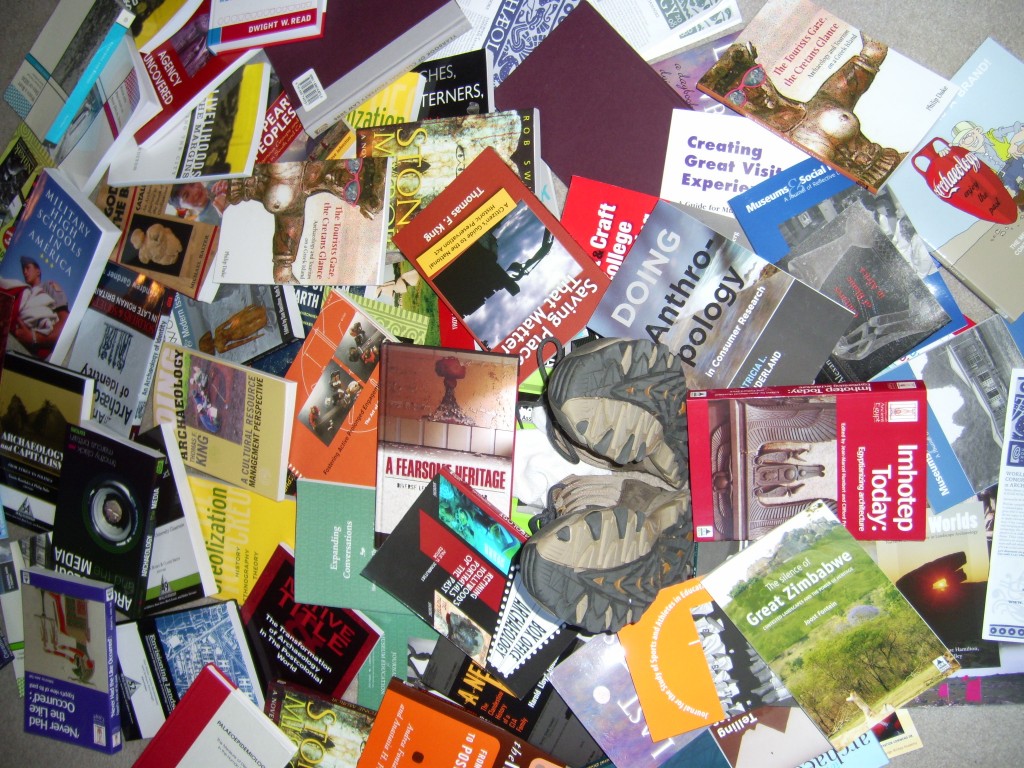
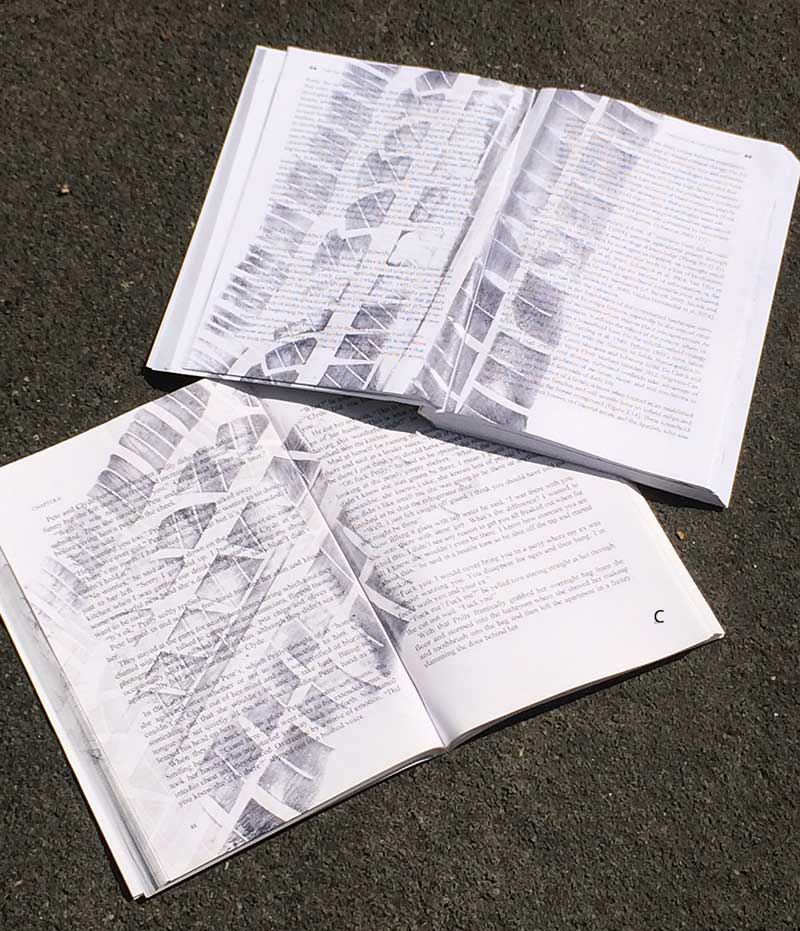

Mitch’s Blog
Writing Sistan
Sunday, July 26, 2020

I’ve been through all 40 notebooks, 10,000 photographs, 4000 slides, and 250 site drawings. I’ve presented over a dozen papers on the project. I’ve had people create over 30,000 scans of the material from the project. I’ve excavated Bill’s garage-- William B. Trousdale, director of the project, now a nonogenarian living in Altadena— half a dozen times looking for more of our original materials. And finally, with last week’s presentation on the Bronze Age out of the way, it’s time to start writing.
Every journey begins with a first step. Yadda yadda yadda. Sorry, this is a book project not zen divination.
More useful advice comes from novelists Jody Picoult, a line I use in my writing seminars: “You might not write well every day but you can always edit a bad page. You can’t edit a blank page.” Even more useful was the advice for academic writers from the late Harry Wolcott, whose many books on qualitative research I was fortunate to publish: “Write the first draft before you do the research.” That really puzzled me. How could you write when you don’t know what you’re going to say? But, three decades and half a dozen of his books later, I realize that Harry was right.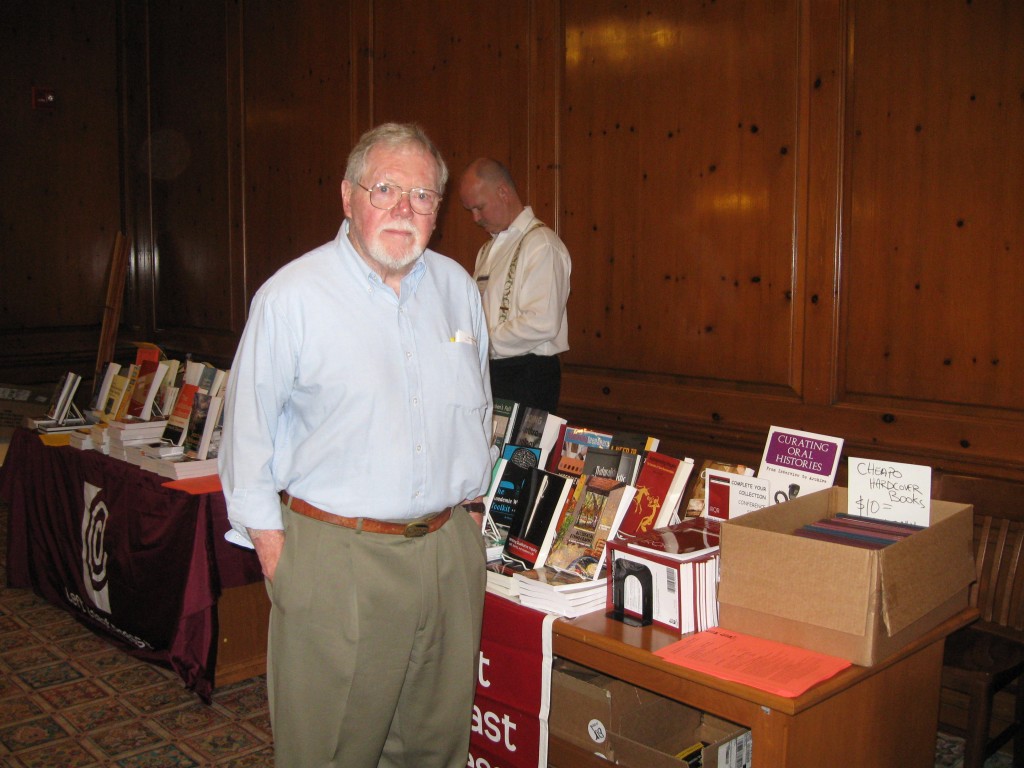 Much of what you have to say can be written before you spend a day in the field. Your research goals, your methodology, much of your analysis of the literature, won’t change from the original proposal to the final draft. Get it down on paper so you have much of a draft done before you’re confronted with mounds of data to digest and make sense of. All those site descriptions I've written, grant proposals, presentations I’ve given, were in service of this moment.
Much of what you have to say can be written before you spend a day in the field. Your research goals, your methodology, much of your analysis of the literature, won’t change from the original proposal to the final draft. Get it down on paper so you have much of a draft done before you’re confronted with mounds of data to digest and make sense of. All those site descriptions I've written, grant proposals, presentations I’ve given, were in service of this moment.
My own history of writing has been much more episodic than Harry would be comfortable with. I’ve written a dissertation on Philistines and Assyrians in the 7th century BCE, never published, and a book on qualitative publishing, both while I had a day job as a publisher. Now I’m about to launch on a third one, the field report of the Helmand Sistan Project, and I have my experiences from the other two to draw upon.
The qualitative book came quickly and easily. It was short, prescriptive, and chatty. Just like a workshop. In fact it was a workshop, or a combination of several of them, that I had been giving about publishing to scholars for decades. I had my examples perfected, a set of sorta funny jokes guaranteed to elicit at least a chuckle, and a set of bulleted prescriptions that could be transmongrified from powerpoint slides into tables, requiring only an explanatory text to fill in the gaps and a chapter was done. Finding a publisher was easy: publisher and author were, in this case, the same.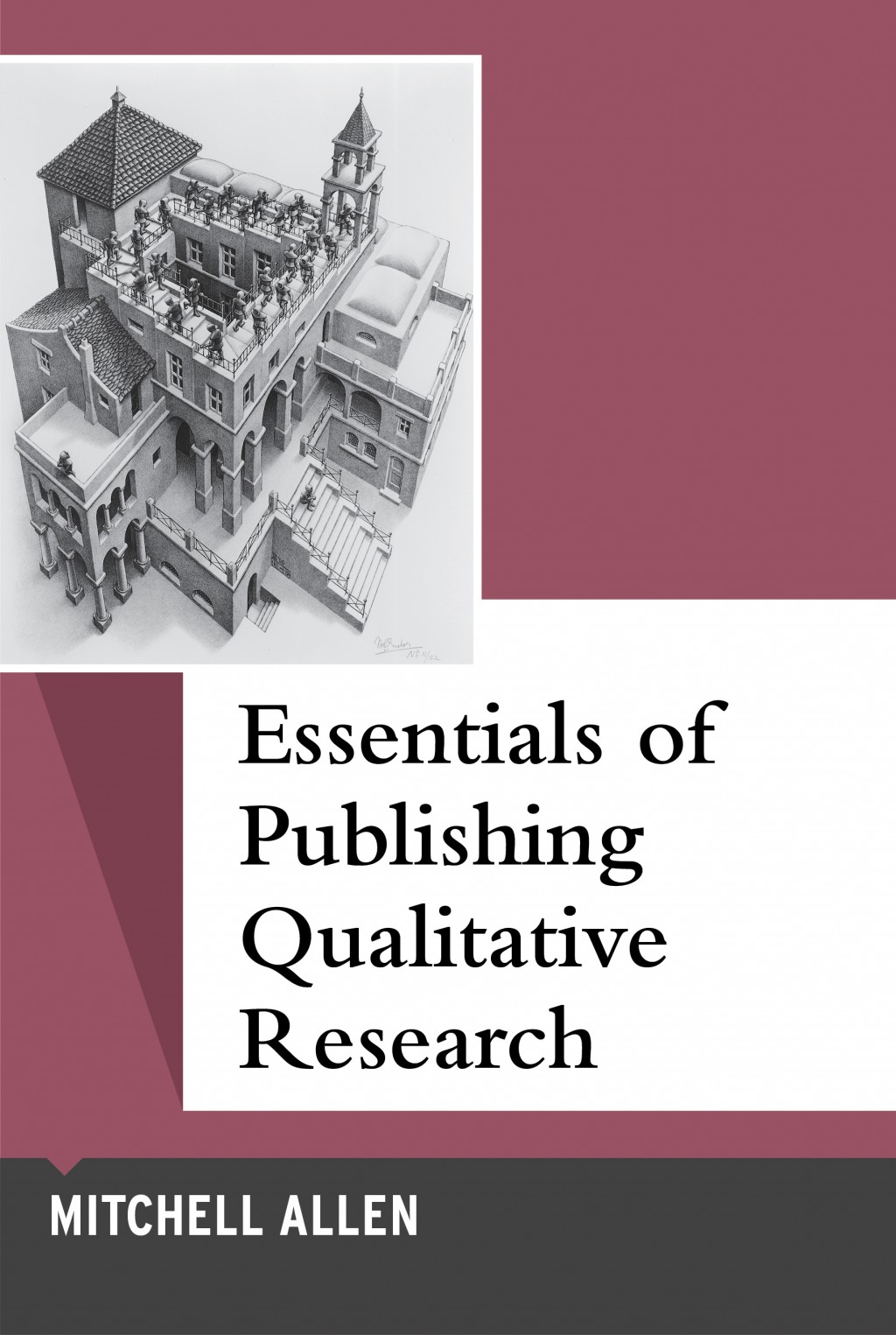
The dissertation is probably a better prototype for what I’m embarking upon now. Working full time as an editor, I spent a month of vacation time over each of 4 winters traipsing around soggy fields in southern Israel near the ancient city of Ashkelon with a small team of volunteer surveyors looking for archaeology sites. Vida stayed home and celebrated Christmas alone caring for two infants those years. We’re still married in spite of it. The literature review was done before heading out to the field, the analysis not particularly complex with the experts from the Ashkelon excavation project, operating simultaneously, to help me sort through my finds. It was just a matter of finding time to write it into a dissertation. Not unlike many junior scholars, that’s where I got stuck.
Granted, I had a full time professional job in publishing that required tending. But many grad students have similar conflicting demands—teaching courses or working at Walmart to pay the rent, coopted in helping advisors or peers on their other projects. I’d fly from Walnut Creek to UCLA once each year to consult with Elizabeth Carter, my dissertation advisor, about my progress. After a decade, Liz finally got tired of me describing the few baby steps I’d taken each year.
“Mitch, you can write this in 2 months. You just need to find 2 months to do it. If you do, it will be done and probably good enough for a degree. If you don’t, then stop wasting your time—and mine--forget about getting a PhD and do something else instead.”
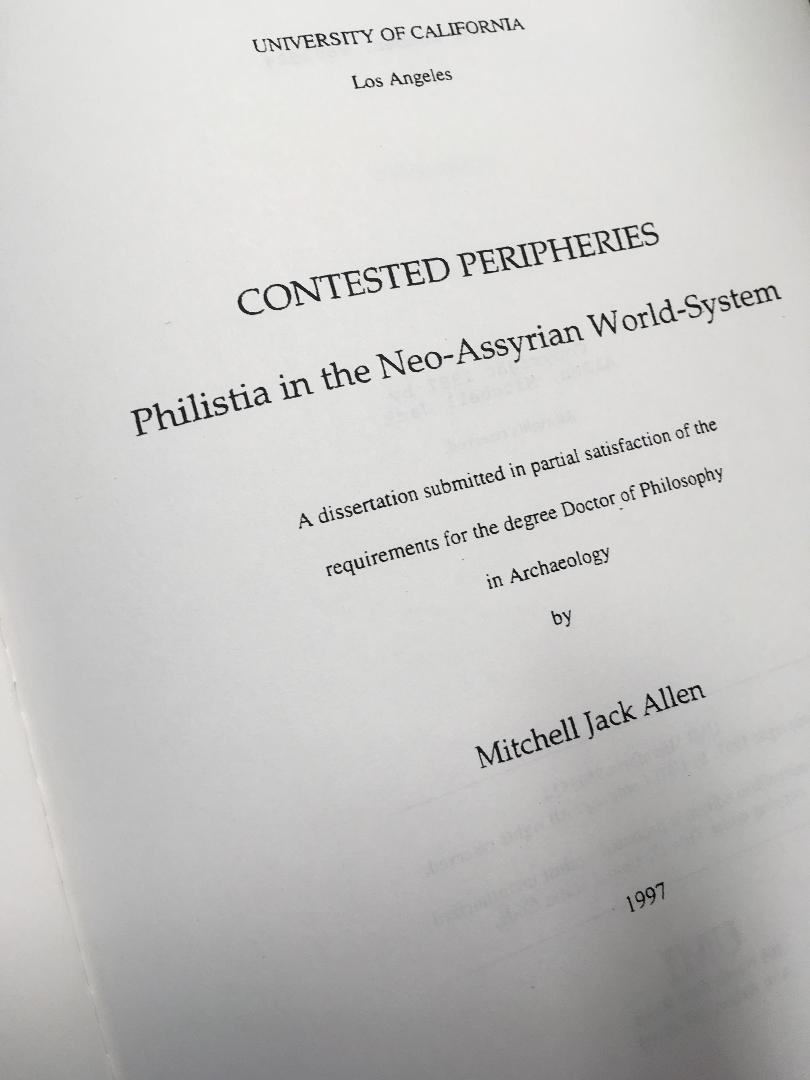 Liz wasn’t one to mince words. And she was right. High level negotiations with Sage, my employer, ensued and I was given a 2 month leave. My assistant, Frances, had been working with me for most of a decade and knew how to handle my book projects as well (often better) than I did. I was to check in with her one day a week to keep necessary items going. Otherwise, I was on dissertation leave. I had a complete 400 page first draft by the time I returned to work nine weeks later. Getting to the finish line was easy from that point.
Liz wasn’t one to mince words. And she was right. High level negotiations with Sage, my employer, ensued and I was given a 2 month leave. My assistant, Frances, had been working with me for most of a decade and knew how to handle my book projects as well (often better) than I did. I was to check in with her one day a week to keep necessary items going. Otherwise, I was on dissertation leave. I had a complete 400 page first draft by the time I returned to work nine weeks later. Getting to the finish line was easy from that point.
I used the writing strategy for my dissertation—less the flarfing around for 10 years—in my workshops, and it appears in the qualitative publishing book. Cut your book into bite size pieces that you can finish in a day, something like 2 page (1000 word) segments. In 2 months, you’ll have 50,000 words done, the size of a brief book, even if you take a few days off here and there.
Be strategic about what section you choose to write each day. They don’t have to be sequential. Pick what piece fits you best on any given day. On some you’ll want to write something that’s easy; on others you can challenge yourself with world systems theory (my dissertation) or multifactorial statistics (nope, that’s not me). It doesn’t even have to be good writing. But whatever you produce are non-blank pages.
Some of my authors (you know who you are) believe in binge writing. Sitting up all night or two or three to write the paper that was due last week. They’ll assure me that they’re “in the zone” and produce their best work that way. Possibly. But as someone who has seen lots of academic writing completed at the publisher’s deadline, pardon my skepticism of the claim that this is the best strategy. My most productive academic writer friends, people like Brian Fagan or Arthur Asa Berger, each of whom has more books to their credit than could be considered fair to the rest of us, are of the disciplined schedule school.
So, now it’s time to follow my own advice again. Yesterday was day one: 1200 words on field methods. Today another 1200 on survey methodology. On a day I want something easy, I can try to adapt one of my conference presentations to fit into the book. Or I can dive into some of the descriptive data I’ve written about one of the sites and put it into publishable form. On a brave day, I’ll try to synthesize the Achaemenid (6th-5th centuries BCE) presence in Afghan Sistan. In the afternoons and evenings, I can get the background material ready for writing the next day’s entry or edit what I’ve already written.
In a few months (given the anticipated length of the final product, maybe more than two), I’m supposed to have a complete draft ready to edit. That’s what I promise my workshop participants. I’d better have that draft. My credibility depends on it.
© Scholarly Roadside Service
Back to Scholarly Roadkill Blog
Scholarly Roadside Service
ABOUT
Who We Are
What We Do
SERVICES
Help Getting Your Book Published
Help Getting Published in Journals
Help with Your Academic Writing
Help Scholarly Organizations Who Publish
Help Your Professional Development Through Workshops
Help Academic Organizations with Program Development
CLIENTS
List of Clients
What They Say About Us
RESOURCES
Online Help
Important Links
Fun Stuff About Academic Life


